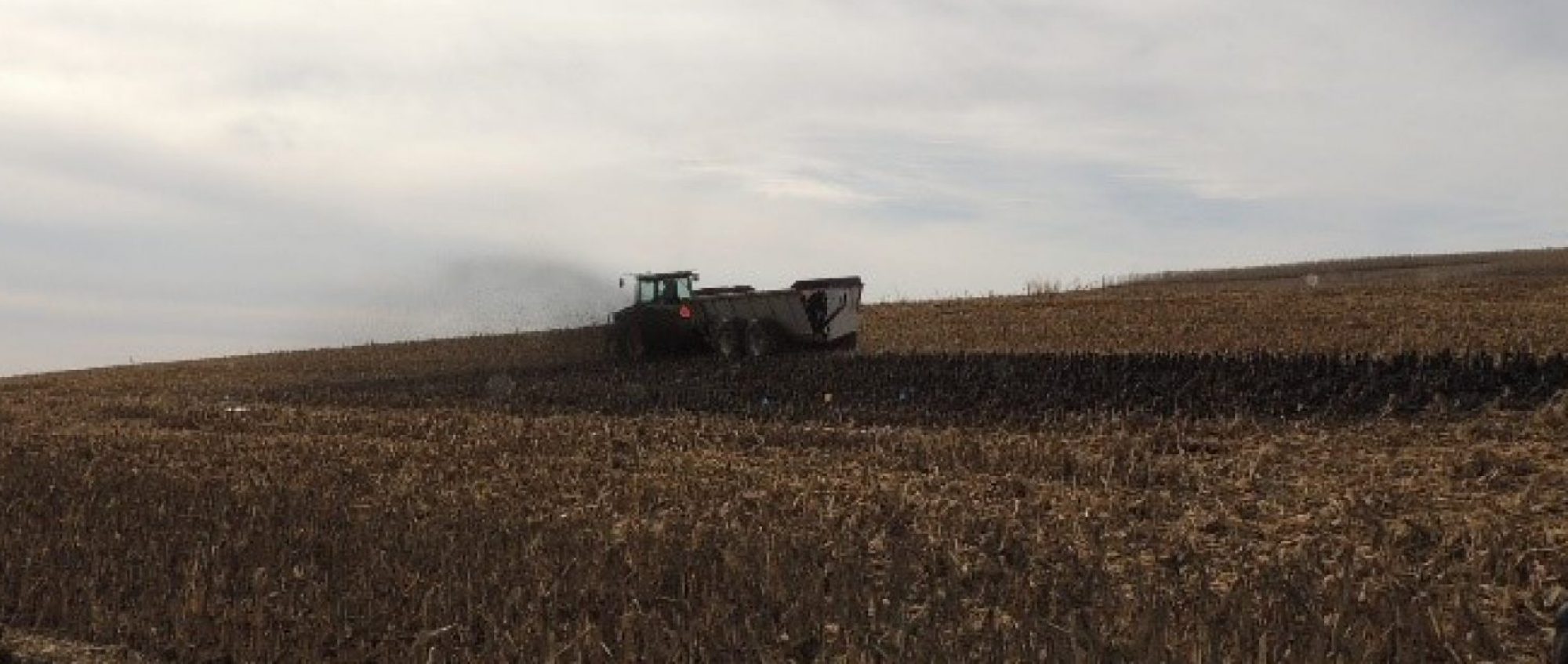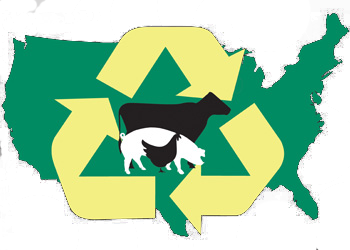Poultry litter and beef feedlot manure are the most common types of “solid” manure. Separated solids from dairies can also be a source of solid manure. Solid manures must be scraped off the floor of the pen or house where the animals were raised. Scraping and loading onto trucks usually is done with a front end loader. If the manure is not land applied at the time the pens are cleaned, the manure can be stockpiled until needed. Poultry litter, in particular, when stockpiled is stored in covered sheds. The cost of the storage shed is an additional cost to manure loading.
Transport Costs of Solid Manure
As previously mentioned, solid manures are the least expensive to transport because most of the bulk transported is dry organic matter containing fertilizer nutrients (N, P and K). Water has little value in manure and adds a lot of weight that costs money to transport. Often, the manure is loaded into transport trucks that haul it to the receiving field, where it is unloaded and then loaded into an application truck.
Land Application of Solid Manure
Land application of dry manures is done with a flail type spreader. The manure, as it comes out of the truck-mounted or tractor-pulled spreader box, is flailed out in small pieces onto the surface of the soil. The spreader box is usually a specialized piece of equipment that can be expensive unless it is used to spread a lot of manure on many acres. If the manure needs to be incorporated into the soil, the cost of disking the manure into the soil could also be considered a cost of manure management.
Transportation Cost Assistance
To encourage appropriate use of the nutrients in manure, several government programs subsidize manure management costs. These programs can help reduce transportation costs, increasing manure value as it is more fully utilized as a soil amendment/fertilizer where it is most needed.
Examples of assistance include:
- subsidy programs in Oklahoma and Arkansas that assist in moving poultry litter from nutrient sensitive watersheds to nutrient deficient areas;
- loan guarantees to producers purchasing appropriate manure transportation equipment in Missouri;
- USDA Environmental Quality Incentives Program (EQIP) that cost shares on certain manure investments depending on the priorities of each individual state.
Potential applicants for assistance programs could contact their local USDA Natural Resources Conservation Service office and state Departments of Agriculture or Environental Quality.
Authors: Ray Massey, University of Missouri and Josh Payne, Oklahoma State University
Page reviewers: Alan Lauver, NRCS and Chandra Theegal, Lousiana State University


